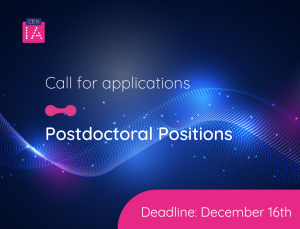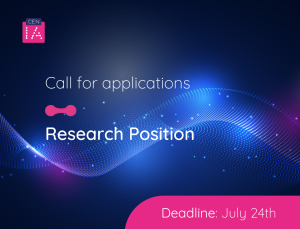From July 11 to 13, Cenia doctoral student Felipe del Río participated in the first Summer school on Neurosymbolic Programming, an initiative organized by professionals from MIT Computer Science and Artificial Intelligence Laboratory, and sponsored by the project “Understanding the world through code“, of the National Science Foundation, which includes researchers from leading universities in the United States.

The purpose of this summer school was to bring together students and researchers from different areas interested in learning about the state of the art, applications and problems in the field of neuro-symbolic programming. For Felipe del Río, this type of event is very important as it allows to establish bonds with other students, professors and researchers who study related topics. “Academically, these experiences expose us to topics that are not necessarily our strength in research, allowing us to explore and internalize more. This event is a very good opportunity for that, as it combines presentations by highly recognized state-of-the-art authors with applied tutorials,” he adds.
Neuro-symbolic artificial intelligence is an area of AI that combines symbolic reasoning techniques (based on logic or knowledge bases), with deep learning models, so that they complement each other and then knowledge can be incorporated into machines. It is expected that this combination of neural networks with symbolic representations will be able to make deep learning-based solutions more explainable, data efficient, adding prior knowledge and more systematic. Very interesting results have been achieved in this field of AI, such as the case of Katie Bouman, a computer science expert who obtained the first photograph of a black hole located 500 million trillion kilometers from Earth, using neurosymbolic AI models.
Felipe del Rio is particularly interested in this area of artificial intelligence, as it is able to provide tools to overcome problems that currently arise with deep learning techniques, which have some limitations to be applied more extensively: “Deep learning models work like a black box, nobody understands very well what they are doing internally, and it has been difficult to use them in some fields such as healthcare, where it is necessary to explain why a decision was made, and therefore, it is essential to understand how they work. That is why at Cenia, in the research line “neuro-symbolic AI” (RL2), we have promoted the study of these models.”

The event was held at the California Institute of Technology and featured hands-on tutorials and lectures for attendees by leading researchers such as Jacob Andreas (MIT), Armando Solar-Lezama (MIT), Charles Sutton (Google), David Choi (DeepMind), Katie Bouman (Caltech), among others.







